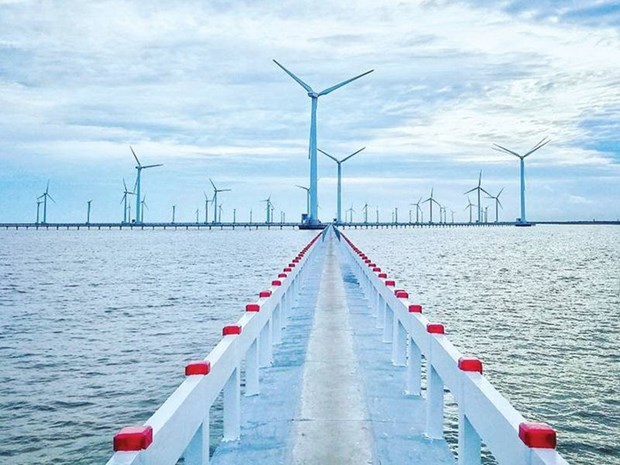Mekong Delta works to advance renewable energy development
Many localities in the Mekong Delta region are focusing on attracting investment and developing renewable energy projects, helping to solve energy security issues and driving socio-economic breakthroughs in the region.
Many localities in the Mekong Delta region are focusing on attracting investment and developing renewable energy projects, helping to solve energy security issues and driving socio-economic breakthroughs in the region.
Energy transition is an indispensable factor for achieving sustainable development and adapting to climate change in Vietnam in general and the region in particular.
Minister of Industry and Trade Nguyen Hong Dien assessed the energy industry as a spearhead for the development of the region. However, given its characteristics as a young delta susceptible to climate change, the industry must focus on clean and renewable energy sources.
Assoc. Prof. Dr. Nguyen Dinh Tho, Director of the Institute of Strategy and Policy on Natural Resources and Environment, also held that the Mekong Delta has the advantage of developing renewable energy, making it a key area for Vietnam to achieve net-zero emissions by 2050 as pledged by the Prime Minister at the 26th United Nations Climate Change Conference of the Parties (COP26).
With a coastline stretching about 700 km, a vast exclusive economic zone of up to 360,000 km2 and strong coastal winds, the potential for offshore wind energy exploitation across the delta can reach between 1,200 MW and 1,500 MW.
The German Agency for International Cooperation (GIZ) reported that the entire region annually receives an average of 2,200 to 2,500 hours of sunshine. More than 90% of the total days in a year see the delta receiving sufficient sunlight to operate solar energy panels, with average radiation ranging from 1,387 to 1,534 kWh/kWp/year.
With these advantages, the total potential capacity of solar power in the entire region could hit 136,275 MW, generating an estimated electricity output of over 216 billion kWh per year. Furthermore, the region can also exploit the potential of tidal energy and abundant biomass energy from its agricultural by-products of over 23 million tonnes per year, which have yet to be fully tapped.
To sustainably develop renewable and clean energy in the region, Dien said that the ministry will continue to lead and coordinate with relevant ministries, sectors, and localities to build the amended electricity law and the renewable energy law for submission to the National Assembly this year. It will also propose the Government issue policies on direct electricity trading.
Moreover, in the Mekong Delta, competent ministries and sectors are also implementing solutions and investing in infrastructure and research of domestic and regional links to serve the import of natural gas and LNG to ensure the supply for power plants in Ca Mau province./.









